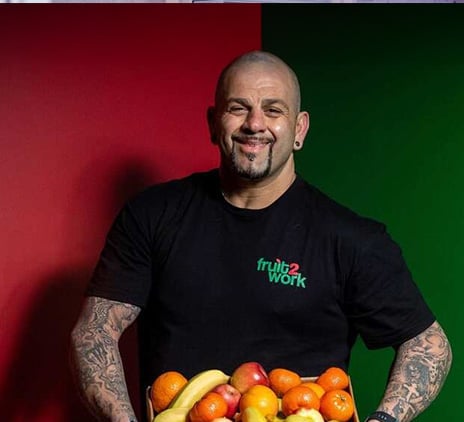- Market services
- Indigenous advisory
-
Compliance audits & reviews
Our audit team undertakes the complete range of audits required of Australian accounting laws to help you to help you meet obligations or fulfil best practice procedures.
-
Audit quality
We are fiercely dedicated to quality, use proven and globally tested audit methodologies, and invest in technology and innovation.
-
Financial reporting advisory
Our financial reporting advisory team helps you understand changes in accounting standards, develop strategies and communicate with your stakeholders.
-
Audit advisory
Grant Thornton’s audit advisory team works alongside our clients, providing a full range of reviews and audits required of your business.

-
Corporate tax & advisory
We provide comprehensive corporate tax and advisory service across the full spectrum of the corporate tax process.
-
Private business tax & advisory
We work with private businesses and their leaders on all their business tax and advisory needs.
-
Tax compliance
We work alongside clients to manage all tax compliance needs and identify potential compliance or tax risk issues.
-
Employment tax
We help clients understand and address their employment tax obligations to ensure compliance and optimal tax positioning for their business and employees.
-
International tax
We understand what it means to manage tax issues across multiple jurisdictions, and create effective strategies to address complex challenges.
-
GST, stamp duty & indirect tax
Our deep technical knowledge and practical experience means we can help you manage and minimise the impact of GST and indirect tax, like stamp duty.
-
Tax law
Our team – which includes tax lawyers – helps you understand and implement regulatory requirements for your business.
-
Innovation Incentives
Our national team has extensive experience navigating all aspects of the government grants and research and development tax incentives.
-
Transfer pricing
Transfer pricing is one of the most challenging tax issues. We help clients with all their transfer pricing requirements.
-
Tax digital consulting
We analyse high-volume and unstructured data from multiple sources from our clients to give them actionable insights for complex business problems.
-
Corporate simplification
We provide corporate simplification and managed wind-down advice to help streamline and further improve your business.
-
Superannuation and SMSF
Increasingly, Australians are seeing the benefits, advantages and flexibility of taking control of their own superannuation and retirement planning.

-
Payroll consulting & Award compliance
Many organisations are grappling with a myriad of employee agreements and obligations, resulting in a wide variety of payments to their people.
-
Cyber resilience
The spectrum of cyber risks and threats is now so significant that simply addressing cybersecurity on its own isn’t enough.
-
Internal audit
We provide independent oversight and review of your organisation's control environments to manage key risks, inform good decision-making and improve performance.
-
Financial crime
Our team helps clients navigate and meet their obligations to mitigate crime as well as develop and implement their risk management strategies.
-
Consumer Data Right
Consumer Data Right (CDR) aims to provide Australians with more control over how their data is used and disclosed.
-
Risk management
We enable our clients to achieve their strategic objectives, fulfil their purpose and live their values supported by effective and appropriate risk management.
-
Controls assurance
In Australia, as with other developed economies, regulatory and market expectations regarding corporate transparency continue to increase.
-
Governance
Through fit for purpose governance we enable our clients to make the appropriate decisions on a timely basis.
-
Regulatory compliance
We enable our clients to navigate and meet their regulatory and compliance obligations.

-
Forensic accounting and dispute advisory
Our team advises at all stages of a litigation dispute, taking an independent view while gathering and reviewing evidence and contributing to expert reports.
-
Investigations
Our licensed forensic investigators with domestic and international experience deliver high quality results in the jurisdictions in which you operate.
-
Asset tracing investigations
Our team of specialist forensic accountants and investigators have extensive experience in tracing assets and the flow of funds.

-
Mergers and acquisitions
Our mergers and acquisitions specialists guide you through the whole process to get the deal done and lay the groundwork for long-term success.
-
Acquisition search & strategy
We help clients identify, finance, perform due diligence and execute acquisitions to maximise the growth opportunities of your business.
-
Selling a business
Our M&A team works with clients to achieve a full or partial sale of their business, to ensure achievement of strategic ambitions and optimal outcomes for stakeholders.
-
Operational deal services
Our operational deal services team helps to ensure the greatest possible outcome and value is gained through post merger integration or post acquisition integration.
-
Transaction advisory
Our transaction advisory services support our clients to make informed investment decisions through robust financial due diligence.
-
Business valuations
We use our expertise and unique and in-depth methodology to undertake business valuations to help clients meet strategic goals.
-
Tax in mergers & acquisition
We provide expert advice for all M&A taxation aspects to ensure you meet all obligations and are optimally positioned.

-
Corporate finance
We provide effective and strategic corporate finance services across all stages of investments and transactions so clients can better manage costs and maximise returns.
-
Debt advisory
We work closely with clients and lenders to provide holistic debt advisory services so you can raise or manage existing debt to meet your strategic goals.
-
Working capital optimisation
Our proven methodology identifies opportunities to improve your processes and optimise working capital, and we work with to implement changes and monitor their effectiveness.
-
Capital markets
Our team has significant experience in capital markets and helps across every phase of the IPO process.
-
Debt and project finance raising
Backed by our experience accessing full range of available funding types, we work with clients to develop and implement capital raising strategies.
-
Private equity
We provide advice in accessing private equity capital.
-
Financial modelling
Our financial modelling advisory team provides strategic, economic, financial and valuation advice for project types and sizes.
-
Payments advisory
We provide merchants-focused payments advice on all aspects of payment processes and technologies.

-
Voluntary administration & DOCA
We help businesses considering or in voluntary administration to achieve best possible outcomes.
-
Corporate insolvency & liquidation
We help clients facing corporate insolvency to undertake the liquidation process to achieve a fair and orderly company wind up.
-
Complex and international insolvency
As corporate finance specialists, Grant Thornton can help you with raising equity, listings, corporate structuring and compliance.
-
Safe Harbour advisory
Our Safe Harbour Advisory helps directors address requirements for Safe Harbour protection and business turnaround.
-
Bankruptcy and personal insolvency
We help clients make informed choices around bankruptcy and personal insolvency to ensure the best personal and stakeholder outcome.
-
Creditor advisory services
Our credit advisory services team works provides clients with credit management assistance and credit advice to recapture otherwise lost value.
-
Small business restructuring process
We provide expert advice and guidance for businesses that may need to enter or are currently in small business restructuring process.
-
Asset tracing investigations
Our team of specialist forensic accountants and investigators have extensive experience in tracing assets and the flow of funds.

-
Independent business reviews
Does your company need a health check? Grant Thornton’s expert team can help you get to the heart of your issues to drive sustainable growth.
-
Commercial performance
We help clients improve commercial performance, profitability and address challenges after internal or external triggers require a major business model shift.
-
Safe Harbour advisory
Our Safe Harbour advisory helps directors address requirements for Safe Harbour protection and business turnaround.
-
Corporate simplification
We provide corporate simplification and managed wind-down advice to help streamline and further improve your business.
-
Director advisory services
We provide strategic director advisory services in times of business distress to help directors navigate issues and protect their company and themselves from liability.
-
Debt advisory
We work closely with clients and lenders to provide holistic debt advisory services so you can raise or manage existing debt to meet your strategic goals.

-
Business planning & strategy
Our clients can access business planning and strategy advice through our value add business strategy sessions.
-
Private business company secretarial services
We provide company secretarial services and expert advice for private businesses on all company secretarial matters.
-
Outsourced accounting services
We act as a third-party partner to international businesses looking to invest in Australia on your day-to-day finance and accounting needs.
-
Superannuation and SMSF
We provide SMSF advisory services across all aspects of superannuation and associated tax laws to help you protect and grow your wealth.
-
Management reporting
We help you build comprehensive management reporting so that you have key insights as your business grows and changes.
-
Financial reporting
We help with all financial reporting needs, including set up, scaling up, spotting issues and improving efficiency.
-
Forecasting & budgeting
We help you build and maintain a business forecasting and budgeting model for ongoing insights about your business.
-
ATO audit support
Our team of experts provide ATO audit support across the whole process to ensure ATO requirements are met.
-
Family business consulting
Our family business consulting team works with family businesses on running their businesses for continued future success.
-
Private business taxation and structuring
We help private business leaders efficiently structure their organisation for optimal operation and tax compliance.
-
Outsourced CFO services
Our outsourced CFO services provide a full suite of CFO, tax and finance services and advice to help clients manage risk, optimise operations and grow.
-
ESG & sustainability reporting
There is a growing demand for organisations to provide transparency on their commitment to sustainability and disclosure of the nonfinancial impacts of their business activities. Commonly, the responsibility for sustainability and ESG reporting is landing with CFOs and finance teams, requiring a reassessment of a range of reporting processes and controls.
-
ESG & sustainability advisory
With the ESG and sustainability landscape continuing to evolve, we are focussed on helping your business to understand what ESG and sustainability represents and the opportunities and challenges it can provide.
-
ESG, sustainability and climate reporting assurance
As the demand for organisations to prepare information in relation to ESG & sustainability continues to increase, through changes in regulatory requirements or stakeholder expectations, there is a growing need for assurance over the information prepared.

-
Management consulting
Our management consulting services team helps you to plan and implement the right strategy to deliver sustainable growth.
-
Financial consulting
We provide financial consulting services to keep your business running so you focus on your clients and reaching strategic goals.

-
China practice
The investment opportunities between Australia and China are well established yet, in recent years, have also diversified.
-
Japan practice
The trading partnership between Japan and Australia is long-standing and increasingly important to both countries’ economies.
-
India practice
It’s an exciting time for Indian and Australian businesses looking to each jurisdiction as part of their growth ambitions.
-
Singapore practice
Our Singapore Practice works alongside Singaporean companies to achieve growth through investment and market expansion into Australia.

-
 Insight Australian wine export strategies post-China tariff removalFollowing the recent removal of tariffs on Australian wine by China, the industry is keen to rebuild relations and explore the right export markets. This presents Australian wine producers with a chance to reassess their position in the global market.
Insight Australian wine export strategies post-China tariff removalFollowing the recent removal of tariffs on Australian wine by China, the industry is keen to rebuild relations and explore the right export markets. This presents Australian wine producers with a chance to reassess their position in the global market. -
 Insight Identify your opportunities in the complex landscape of fuel tax creditsThe landscape of fuel tax credits (FTC) is constantly evolving due to ongoing economic and technological developments. This dynamic environment presents both challenges and opportunities for businesses with significant fuel consumption.
Insight Identify your opportunities in the complex landscape of fuel tax creditsThe landscape of fuel tax credits (FTC) is constantly evolving due to ongoing economic and technological developments. This dynamic environment presents both challenges and opportunities for businesses with significant fuel consumption. -
 Client Alert March 2024 Update: NSW Grants for Net Zero Manufacturing and Physical SciencesSome major NSW grant programs have been announced, supporting projects in clean technology innovation, low carbon product manufacturing, renewable manufacturing and physical sciences.
Client Alert March 2024 Update: NSW Grants for Net Zero Manufacturing and Physical SciencesSome major NSW grant programs have been announced, supporting projects in clean technology innovation, low carbon product manufacturing, renewable manufacturing and physical sciences. -
 Insight Navigating a complex Agribusiness, Food and Beverage deals landscape in 2024Despite a 14% global decline in Agribusiness, Food, and Beverage M&A deals, 2024 shows promise with expected global interest rate stabilisation. Given the sector's role in global sustainability, businesses can tap into opportunities in food manufacturing and waste minimisation.
Insight Navigating a complex Agribusiness, Food and Beverage deals landscape in 2024Despite a 14% global decline in Agribusiness, Food, and Beverage M&A deals, 2024 shows promise with expected global interest rate stabilisation. Given the sector's role in global sustainability, businesses can tap into opportunities in food manufacturing and waste minimisation.
-
Renewable Energy
Transformation through energy transition

-
Business Planning and Strategy
Having an honest, broad-reaching and thought-provoking discussion with a skilled, independent advisor can be the catalyst for clarity – a direction to take your business forward and an understanding of what is key to success.

-
Flexibility & benefits
The compelling client experience we’re passionate about creating at Grant Thornton can only be achieved through our people. We’ll encourage you to influence how, when and where you work, and take control of your time.
-
Your career development
At Grant Thornton, we strive to create a culture of continuous learning and growth. Throughout every stage of your career, you’ll to be encouraged and supported to seize opportunities and reach your full potential.
-
Diversity & inclusion
To be able to reach your remarkable, we understand that you need to feel connected and respected as your authentic self – so we listen and strive for deeper understanding of what belonging means.
-
In the community
We’re passionate about making a difference in our communities. Through our sustainability and community engagement initiatives, we aim to contribute to society by creating lasting benefits that empower others to thrive.
-
Graduate opportunities
As a new graduate, we aim to provide you more than just your ‘traditional’ graduate program; instead we kick start your career as an Associate and support you to turn theory into practice.
-
Vacation program
Our vacation experience program will give you the opportunity to begin your career well before you finish your degree.
-
The application process
Applying is simple! Find out more about each stage of the recruitment process here.
-
FAQs
Got questions about applying? Explore frequently asked questions about our early careers programs.
-
Our services lines
Learn about our services at Grant Thornton
-
Current opportunities
Current opportunities
-
Remarkable people
Our team members share their remarkable career journeys and experiences of working at Grant Thornton.
-
Working at Grant Thornton
Explore our culture, benefits and ways we support you in your career.
-
Current opportunities
Positions available.
-
Contact us
Get in touch
When COVID-19 hit, new listings on the stock market took a dive.
And while Australia is technically in a recession, we’re starting to see more companies looking to list on the ASX in the run up to Christmas. It might seem counterintuitive, but changing markets and consumer habits has fast tracked some companies on their path to IPO as much as it has stalled others.
We talk to Neil Cooke and Jonathan Mather, Financial Advisory partners specialising in IPOs, about which companies are listing during a global pandemic, how the ASX is pitching itself as a global source of capital, and what the ASX of the future could look like.
Available on Apple Podcasts, Spotify or within your browser
Velvet-Belle Templeman
Welcome to Grant Thornton’s ‘Navigating the New Normal’ podcast series. My name’s Velvet-Belle Templeman and I’m here talking to Neil Cooke and Jonathan Mather, financial advisory partners at Grant Thornton, specialising in IPOs. Today, we’re talking about the Australian stock market and COVID-19. Thanks so much for joining us, Neil and Jonathan.
Neil Cooke
Thank you.
Jonathan Mather
Thank you very much.
Velvet-Belle Templeman
Now Neil, I’m going to start with a pretty basic question for you. Wouldn’t this be a stupid time to list on the ASX or really on any exchange? From day to day, the market always seems to be changing.
Neil Cooke
I don’t consider it a stupid time to consider a listing. You’ve seen the ASX has been tracking Wall Street and some of the larger tech stocks like Apple and Facebook have had a bit of a correction, clearly over valued. We also know that there are a lot of stocks that were doing well before COVID-19 that will continue to do well post COVID-19. In addition to tech and surprisingly you’ve got health and e-commerce stocks, which are very attractive to investors. We are in a low interest rate environment so investors are putting cash into equities, and over all there’s a lot of investor demand for good businesses with a significant pipeline of IPO’s slated for Quarter 4 of this year.
I also think its just dangerous to draw a parallel to the GFC. Its different now, its not a broken Financial Services sector, it’s a health pandemic that we’re dealing with.
Velvet-Belle Templeman
That’s interesting. How different is this to what you’ve been seeing in the lead-up to COVID, Jonathan?
Jonathan Mather
Just generally, in terms of the ASX activity, there’s been a downward trajectory in the number of new IPOs throughout 2018 and 2019. I’ll just put a bit of colour around that. In the three-year period of 2015 to 2017, there was over 150 new ASX listings per year in each of those three years and what we saw in 2019 was just over 90 new IPOs. But what was interesting about 2019 was that there was a large rush in December. Close to one-fifth of the total IPOs in 2019 happened in December and this was predominantly in the techs – fintech, healthcare and resource company space. It was also largely weighted to the small and mid-cap IPOs. So we’re saying sub-$500 million type of market cap.
This trend continued in Q1 of 2020 as well. More the smaller mid-cap IPOs and larger predominantly tech, healthcare, fintech and resource space as well. I know anecdotally speaking, it felt like Neil and I were out visiting new companies every week in January and February who were looking at an IPO prior to June or earlier, or before Christmas this year.
Velvet-Belle Templeman
Now, there are some commonalities there. Investors were and continue to place their dollar in health and fintech. How would you describe the Australian investor?
Neil Cooke
I think the Australian investor’s looking for businesses which have navigated or benefitted from COVID-19. For example, alternate lenders are quite attractive. You had the recent listing of Laybuy and the upcoming listing of Plenti. I think online businesses are attractive as well and any business that really does not rely on travel or immigration is quite attractive to Australian investors. I think one of the buzz words at the moment is digital adoption or adaption. You’ve seen the inability to travel in people’s time at home has really accelerated the use of the internet, the basic services and e-commerce. They’re the kind of businesses that’s quite attractive to investors looking to deploy capital.
Jonathan Mather
Yeah, I agree with that, there’s been a lot of demand coming up now in the online retail space. Tech, fintech, SaaS businesses – there’s still quite a strong pipeline of companies looking to IPO. In the resources space, the metallurgical outfits as opposed to energy, is getting some good headwind there. One thing that’s been pretty interesting that’s popped up in the last few weeks in our pipeline is a few clean energy assets. Again, moving away from your traditional energy sources to clean energy, so might see some movement in that space over the next 12-18 months as well.
Velvet-Belle Templeman
Surely, even for hot businesses, listing must be risky in this current environment, how do you create confidence for a successful IPO?
Jonathan Mather
Well, I think it’s the same with any, I suppose, transformational event in a business or any major transaction and the key is preparation and making sure your ducks are lined up prior to embarking on the journey, so that’s making sure your legal documentations are in place, you have the right policies in place, the audits are all squared away. Just from our experience, even outside of the COVID environment, companies that are going through the cleaning up process in the middle of an IPO generally have a more costly, drawn-out IPO process. Whereas those that had focused their time prior to embarking the process on getting everything squared away has a more smoother run.
I think one thing that’s interesting about the current environment is, there’s going to be certain windows where it is going to be quite beneficial to IPO and others where it’s not going to be beneficial. I think that’s what we’ve seen in the last few months. When COVID hit mid-March, every deal that we were working on effectively halted, including the IPOs. When you look at the September pipeline on the ASX website, there’s a good 10-11 companies looking to hit the market in the next few weeks. All 10 or 11 of those would not have halted during the onset of COVID. They might have slowed down the process but they would have kept on making sure the stories were clear, making sure the prospectus was still being prepared. I think in this kind of environment, if you really do want to IPO and have a successful listing, if the markets aren’t quite there you don’t need to stop the process fully. You can maybe slow things down but keep things moving so that you’re able to, when the market do stabilise and improve, get a successful deal away quite quickly.
Neil Cooke
The only thing I’d add to that is, I think the fundamentals haven’t changed. I mean, you need a well-articulated business model and good management and board. I think one of the current environment impacts though is that companies and vendors need to have realistic valuation expectations and you’ve seen the heat in the technology sector being driven out of the US and that’s really pushing up some valuation. I think it’s just taking a bit more of a step back and having a long-term view. While we’re also seeing, just to provide some confidence to investors, there’s also companies are still including forecast but certainly for a shorter period. It gives a view of current trading beyond your audited history, but is very difficult to forecast in the current environment. Having a shorter forecast period still gives a view of the future but it also meets all of the regulatory guides that people are familiar with.
Velvet-Belle Templeman
I was reading an article a while back that was talking about the ASX targeting overseas companies to list in Australia, what’s that all about?
Jonathan Mather
Yes, that’s a good question. The ASX, over the last few years, has been embarking on a fairly significant marketing campaign targeting overseas companies and they performed roadshows throughout Silicon Valley in the States, Israel and Ireland. One, I guess, common factor of all those three jurisdictions, is they’re technology hubs. There’s been a real big push by the ASX to be seen as a global source of capital for high-growth technology businesses. Again, earlier this year the ASX launched the ASX200 Technology Index to further cement that image to the global market that, yes, we’re a significant player in tech capital and if you’re a high growth tech busines you want to try and list on the ASX.
Neil Cooke
I think the ASX has also taken advantage of the current situation. I mean, we’re looking at physical borders are closed, but if you’re the technology or a global business, you’re very attracted to Australian investors, you don’t necessarily have to have that bricks and mortar style connection to Australia in the current environment. I think the ASX is doing a really good job in really setting out Australia as a liquid market and also a good target for companies who really want to be playing on the global stage.
Velvet-Belle Templeman
Let’s talk about the ASX then. Why would you list here as opposed to the NASDAQ or FTSE?
Neil Cooke
I think from a following point of view, a lot of companies are earlier stage and if you list on NASDAQ or the FTSE, you’ll just get lost amongst all the other companies. Also, there’s a lot of companies that are a bit too small for those exchanges. I think with the ASX, you’ve got very strong retail investor base. They’re very knowledgeable and arguably, sometimes you can get a higher valuation on the ASX compared to some of the overseas exchanges. If we just look a bit more closer to home around the region, you’re looking at places like Hong Kong, Singapore, really cost prohibitive to list there and also, when we look at NASDAQ and the FTSE, to maintain a listing it can also be cost prohibitive. So I think the ASX just really set itself out to be a liquid market which is cost effective but still has the same governance.
Jonathan Mather
Yeah, that’s a good point, Neil. There’s been quite a number of successful overseas based IPOs in the recent history. Some examples include Limeade, which is an employee experience software business, they raised $100 million dollars in December last year at a market cap of just under $400 million. Nitro, another software business, listed in December ’19 with a market cap of $325 million, raised $110 million. Sezzle, another overseas based business, a July listing raising $43 million. These are not, again, massive IPOs, but in that mid-market space and probably would not have got the traction that they would over in their home jurisdictions.
Velvet-Belle Templeman
I know it’s hard to predict the future of the ASX, people have made and lost fortunes in the attempt, but if we take what we know about the ASX and how it wants to position itself in the future, and our experiences from recessions in the past, what do you think we might see in the next two to five years?
Neil Cooke
Yes, it’s very difficult to have a crystal ball in the COVID environment, it’s hard to predict. We’ll admit, we’re only six months into COVID-19 and how long that lasts, nobody knows. But I think in Australia there’s a significant amount of capital to be deployed and so as long as the investor confidence is maintained, people just get used to this as the new normal and there should be a continued pipeline of IPOs and pretty strong market. I think with our superannuation system and – also, you’ve got a lot of people sitting at home, the day-traders, playing the stock market. That really keeps the market liquid, keeps prices overly over-inflated at times. But certainly, there is significant capital to be deployed and a lot of people have got superannuation sitting in cash where obviously you’re not getting a return that you would get on an equities market.
As I say, it’s difficult to predict, I wouldn’t be doing this job if I could predict accurately, but I think certainly what we’re seeing is I think as long as the confidence stays with the market, there should be sufficient pipelines there for investors.
Jonathan Mather
Yeah, I agree with what Neil is saying. The one thing that makes this very different is, when you compare it to the GFC which was the broker and financial services sector, this recession we’re in is a global health pandemic. The economy was quite buoyant before that and at the moment it’s proven to be quite resilient, I feel. Yeah, as Neil said, if we knew where the markets were heading I probably wouldn’t be here at this point but it’ll be interesting to see what happens over the next few years.
Velvet-Belle Templeman
Neil and Jonathan, thank you for your time.
Jonathan Mather
It’s been a pleasure.
Neil Cooke
Thank you.




































